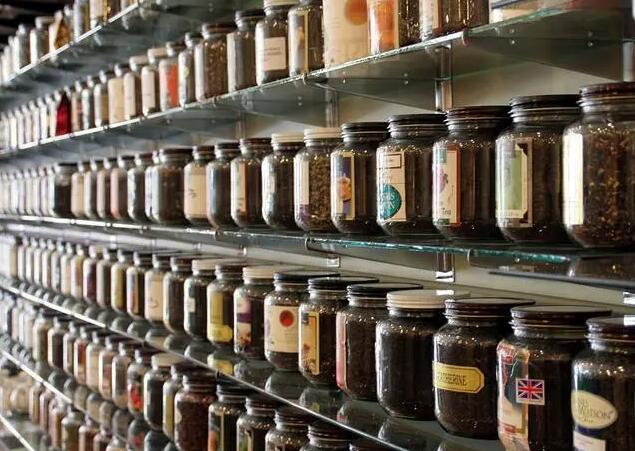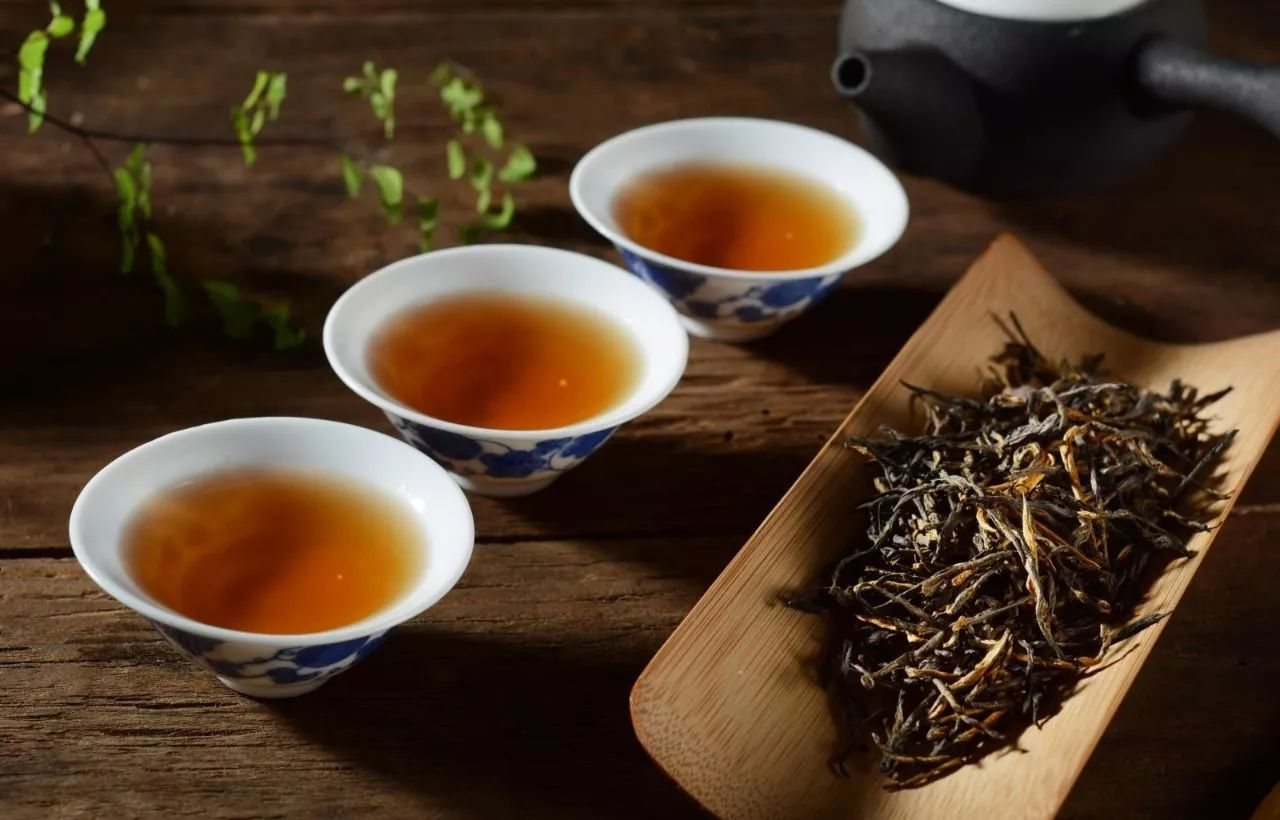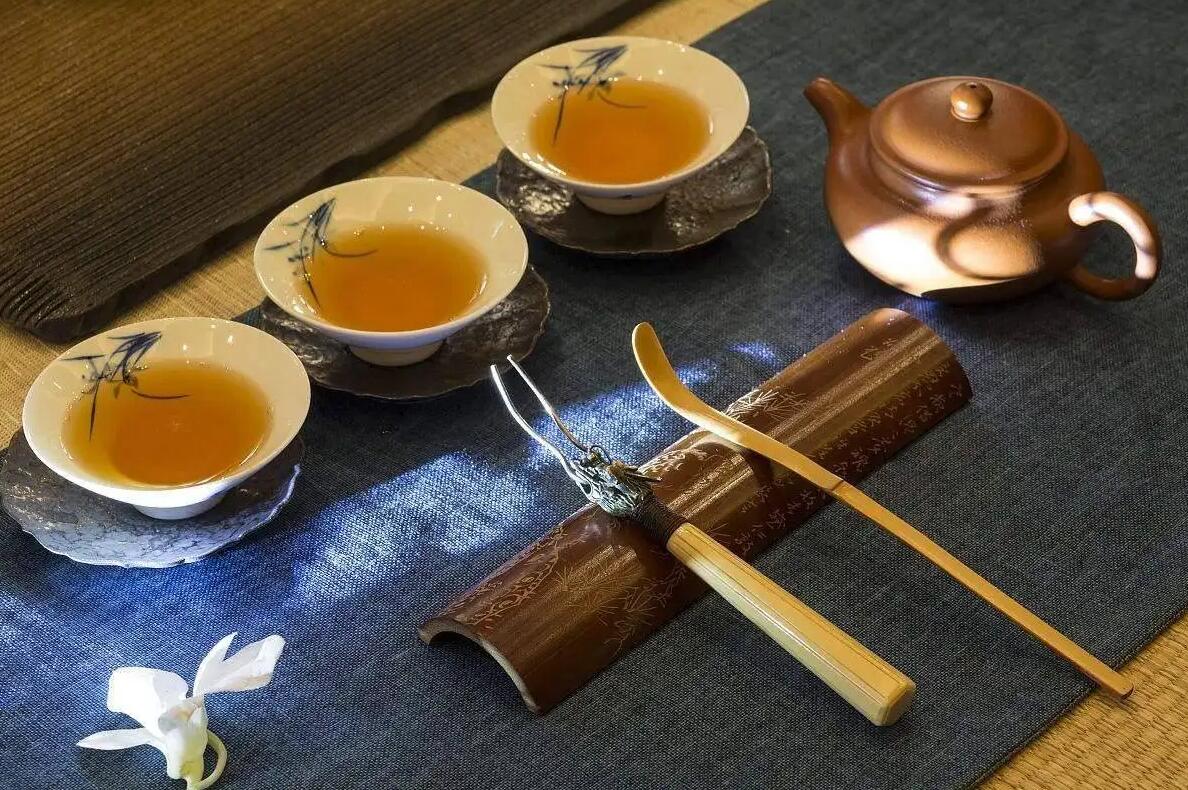Author: He Jing Cheng
This year has brought the good news of rising prices for large tree tea in the tea growing areas of Yunnan. Tea sellers no longer discuss when Puerh tea will return to its former glory. Instead they talk about the latest prices for large - tree tea from a certain famous growing area and how much higher they will go. They are busy developing unknown and unique tea - growing areas. Each company is extremely involved in producing its own "High grade tea" or "Top grade tea."
Puerh tea was originally just an everyday tea product, a favorite of common people in the coastal regions of Guangdong province. This includes, of course, people from Hong Kong, Macau, and overseas Chinese throughout Southeast Asia. In those early days Puerh was not yet an object of speculation. Prices were stable; quality was stable; and the market was relatively stable. The consumer market also obeyed a certain level of order. For instance, tea sellers took responsibility for storing tea. Consumers only bought tea when they needed it. The practice of consumers buying Pu-erh and storing it for later use was not unheard of, but it was exceedingly rare.
The situation changed when Puerh tea began to attract followers. It was not love of Puerh that drove everyone to begin storing tea. In general, we can divide buyers into two groups: The first were consumers, who saw Puerh prices changing quickly and noticed that quality tea was difficult to find. A situation of stable prices had become one of "seafood prices," and they were left with no alternative except to store tea in order to avoid being left with no tea to drink. The second group was made up of the so-called collectors, hoarding tea for speculation. Propelled by these two groups of people, the market slowly overheated and crashed in mid 2007. We will not elaborate on that chaotic period.
Today the market has undergone almost two years of correction. The situation has already improved, but consumers are only focused on a few famous brands. Consumers have taken advantage of low priced sell-offs, giving them the opportunity to possess these famous brand products. The so-called collectors have aimed their purchasing at driving down the price of the tea they already possess and diluting the market. Of course there are also some true consumers who have begun to accumulate tea. Their goals are much like in the past, and they are likely to choose products of high quality and high value. Most important is whether they like a particular product. Brand name is only a small factor in their consideration. This suggests that a rational Puerh consumer market has quietly begun to emerge.
Over the past few years, Puerh tea has resembled a car traveling through the mountains. From 2003 onward, prices have steadily risen. The market gradually amassed a group of consumers who watched as tea prices climbed by the day. This inspired many to think of getting into business. How many agricultural products do people purchase for collection? Moreover, the barriers of entry into the market were not high. With no need for equipment or knowledge one could quickly earn large sums of money. Many tea friends went into business for these reasons, and in April 2007 all they saw was a bright future. They were extremely busy buying and selling merchandise. Some took note of a certain large company that willingly lent out the brand name it had spent decades building for payment, allowing client businesses to personally produce merchandise. This was great news for these businesses, and every day they showed up with cash at the company offices waiting to pay and sign contracts. We cannot say that every relabeling seller produced tea with bad intentions, but when the tea growing areas suddenly experienced unforeseen demand, prices naturally rose. High raw material costs combined with extra rebranding fees caused tea sellers to go over budget.
This naturally inspired some to think of using raw materials from outside of Yunnan. In a nutshell, the Yunnan Puerh tea crash of 2007 was absolutely caused by human factors. First, there were the well- known processing plants, taking profit from the market as their own. Second, a certain company rented out its name but didn't ensure product quality, thereby losing the confidence of customers. Third, Yunnan, anxious for ever greater results, falsely reported production, increasing produce every year and flooding the market. Fourth, tea sellers went to great lengths to fool consumers, causing Puerh consumers to back off. Today, the consumer Puerh market has undergone two years of purification. Processing factories have used the time to reformulate their supply and marketing plans. They no longer believe that factory processing is worth its weight in gold. Large companies need to protect, through honesty and sincerity, the reputations they have worked for decades to build and to restore the former value of their trademarks. Businesses have had time to draw a valuable lesson from this painful experience. That is, do not deceive consumers. Obviously, it is essential for Yunnan to take serious the task of overseeing the industry and to no longer allow it to operate in darkness. Solid management is needed, which will not allow outside tea to enter into Yunnan without good reason. Consumers will naturally return.
I have gone from a role of consumer to a small tea seller. As a result, I understand the requirements of consumers. From the time I entered the tea business to today, I have insisted on only collecting and selling quality tea products. Whether the tea comes from a large or small company or is processed and overseen by a famous person is not at all important. As long as the tea is top quality, even in a slow market there is no need to fret. Although it is not as easy to make money in a consumer market as in a speculative market, operating conditions are more stable and lasting. The rate of survival is naturally higher. Inferior tea products of the past also need not cause consumers to leave the market. Tea sellers and manufacturers with foresight have undergone two years of training and should understand how to operate in a way that works for customers. In the future, the market will decide whether Puerh tea is reborn.



